Last week I was stumped by the concepts of contrast enhancement and lateral inhibition in space and time as described in Gordon Shepherd’s Neurogastronomy: How the Brain Creates Flavor and Why It Matters.
“He [Hartline] further showed the mechanism that produces them [Mach bands]: lateral inhibitory connections between the receptor cells. Through these connections, the strongly excited cells at the border more strongly inhibit the weakly stimulated cells, and the weakly stimulated cells more weakly inhibit the strongly excited cells. The mechanism is called lateral inhibition. The effect is called contrast enhancement, because the difference between the light and dark areas is enhanced at their boundary. In a general sense, contrast enhancement also is a kind of feature extraction, the enhanced response to specific spatial features in a visual scene. This is contrast enhancement in space.” (Shepherd: 61)
“Hartline’s laboratory also showed that there is contrast enhancement in time. When there is an abrupt increase in illumination, a single cell responds with a large increase in impulse firing, which rapidly declines to a steady level somewhat higher than before. The overshoot in impulse frequency is called the phasic response, in contrast to the steady tonic response. It shows that the nervous system is sensitive primarily to a change in the environment rather than to an unchanging steady input. This contrast enhancement in time is the counterpart to contrast enhancement in space. After the initial increase in stimulation, lateral as well as self-inhibition comes to counterbalance the higher level of steady stimulation.” (Shepherd: 61/62)
I hope to eventually be able to explain human behavior in the context of lateral inhibition and contrast enhancement in space, and why it is a kind of feature extraction. Until I get there, these are my thoughts.

I have not started reading my assigned text Thinking, Fast and Slow and I hope to revise this understanding as the quarter progresses. These two beautiful blobs represent two modes of thinking, often understood as higher consciousness and lower consciousness. I believe the “lower consciousness” is actually your brains “fast” emotional mode of thinking and the “higher consciousness” is the brains “slow” intellectual mode of thinking, designed to reflect on the emotional mode of thinking’s sentience. Lateral inhibition describes the checks and balances system of the brain, as Shepherd states, the mechanism, and the effect is called contrast enhancement, which I think can only be thought about as moving through time.
The effect of contrast enhancement can be understood in the terms of emotional consumption. If something wants to shine more brightly than others, it could consume the emotion of its surroundings to create a sharper contrast of itself amongst everything else, or it could try and shine brightly and positively affect everyone’s mood by a powerful individual presence. How that happens can be understood in two different ways.
The first way is to self reflect.
The second way is to seek an understanding through others.
The first way to reflect is inspired by an event that jolts the person into a phasic response through an overshoot in impulse frequency in contrast to a steady tonic response which might be described by the second way of seeking an understanding. After the initial increase in stimulation, lateral as well as self-inhibition (could be described by using lenticular logic) comes to counterbalance the higher levels of steady stimulation.
So let’s look at the effect of contrast enhancement in both approaches, starting with self reflection.
In the emotional reaction following the phasic response, a person can self reflect and find balance through understanding both methods do not exist in absolute indifference (look at a yin-yang symbol, to a small degree one exists within the other). How one finds a balance through their understanding of lateral and self-inhibition will affect how they exist beyond themselves.
In the second emotional response, a person can seek an understanding through others rather than self reflection. Over time, an understanding will be found and the principle behind their actions will exist in some way beyond themselves as interpreted by the people they affected. As that person continues to deflect accountability, the use of lenticular logic persists as shown in the diagram above to defend their sense of being formed through this emotional response following the phasic response. Think about a part of Shepherd’s quote in the context of preserving the natural environment,
The overshoot in impulse frequency is called the phasic response, in contrast to the steady tonic response. It shows that the nervous system is sensitive primarily to a change in the environment rather than to an unchanging steady input.”
and what the health of the environment might represent to someone altering their perception of how they exist in the context of their environment.
Earlier in the week I began understanding contrast enhancement in the context of humans through internalizing that humans are supposed to be emotionally blinded by their children to offer the opportunity for change and understanding of what the previous generation has done in order to adapt to their understanding of the environment as the next generation comes of age The blinding process is supposed to encourage an increased understanding of the “higher consciousness” brain’s mode of thinking. But are human’s nervous systems doped on electronics getting encouraged? Or having a phasic response? Contrast enhancement in time exists for all organisms, that’s what natural selection is. Natural selection amongst humans is a mythical origin story that has formed from the fallacy of thought that humans are often believed to be superior, or greater than nature, which was not apparent until we completely destroyed that sense of self through the natural environment. Natural selection amongst all species is very real, but how that species separates itself through contrast enhancement determines whether or not that species will die off or evolve in its ability to co-exist with other organisms.
If the importance of self-preservation is internalized after the phasic response with a similar amount of emotional intensity, you can end up developing a wonderful system to preserve the self, but because you know the importance of the concept so well you might find security in your knowledge or approachof understanding of how to preserve the self which could be blinding if you are in a state of emotional need and seeking affirmation. If this occurs your perception will be altered because you may have become emotionally invested in that knowledge itself rather than applying that knowledge to your brain’s emotional way of thinking because of how you formed a sense of identity through your culture through the use of an intuitive crutch (an immature phasic response reinforced over time).
This picture represents an undeveloped sense of self formed in an oppressive culture seeking affirmation between both modes of thinking in the brain. How this unidentified self finds balance again affects how it exists beyond itself. Seemingly, why can’t a good intentioned person apply their understanding to themselves if previously internalized ideologies stand in the way of the ability to honestly reflect on who they are? If the culture that you formed your sense of identity in and other members consumed by that culture attacked you because you represented what it was denying and couldn’t understand it, and you couldn’t understand why you were being attacked and loved simultaneously, then over time many will feel they don’t deserve to feel happiness if they persist through it. How we understand the phrases attacked and loved depend on the person’s understanding of their experience and the context of how their experience shaped their perception. That is why the use of the intuitive crutch itself persists so heavily today.
This week I also thought about the concept of genius. As previously stated, the “slow” mode of thinking in the brain is an inhibitor to the “fast” mode of thinking, and the balance in between can be described as the line that is present in all of the hand drawn diagrams. This happens in moments until the genius concept is applied to preserving the body’s physical and emotional state to sustain that level of thinking. If this is done repeatedly across time, you can rewire your brain to manufacture something in the physical realm that simulates existence beyond the perceived world as exemplified by John C. Lilly’s use of hallucinogenic drugs and his creation of the sensory deprivation tank. The intellectual capacity of utilizing both modes of thinking was exemplified by the mind of Einstein and his capacity to use both modes of thinking simultaneously. If you think too emotionally and develop through the “fast” systematic mode of thinking that includes the rational mode of thinking, you can end up rewiring the emotional attached side of your brain to be your own version of higher consciousness – an intuitive crutch. This can be used with good or bad intention because as you seek to sustain emotion, whatever state it may be, you develop or sustain emotional crutches on a personal and large scale. This is how caste systems are manufactured – manifest destiny through consistent tonic responses.
This week I also thought about what this means in the context of experiencing “the other”:
People that leave their sense of self to experience “the other” with the intention to return back to their sense of self are doing so by “thinking fast” and bring their systematically developed modes of thought with them, which may or may not have already been developed and wired into the brain over time to incorporate the comfort of what they are leaving to enjoy the experience of leaving their sense of self even more, while seeking for confirmation of how good (they are) their ability to convince themselves through other people is. If they seek out the other in the most honest way, without reflecting on how their intense phasic response is transmitted their culturally assisted sense of self, (as shown in the image below)
they are only reinforcing their belief that they have left themselves and become what they dreamt they could be, but over time only dream up ways to reinforce the belief in the false sense of self. Social media reinforces this falsehood that we need to represent well and be this magnificent image in other’s eyes. As this continues to happen, a person might know that what they’re doing isn’t correct, but the emotional immaturity to get rid of their “progress” allows for someone to pity their growth which affects how they continue to satisfy a state of need through developing a prosthetic heart (negative human innovation to confirm one’s sense of brilliance).
Meditation and Rice
How much you fill your rice cooker with rice is an act based on your hunger. The reflection of your state of hunger can be understood by how much water you decide to add to it. Too much water, and you have watery rice, and you don’t deserve that do you? We all are more than willing to self-pity over watery rice, but it is easier to stir the rice and continue to wait patiently. When filling the bowl of rice with water it is wise to note if you are scared of burning the rice. If there is a lot of water in the bowl, maybe decide to stir the bowl more than once before you decide the rice is cooked. If impatience overcomes the meditation and watery rice is eaten without accepting why the rice might be watery, it might be reflected in how much spice was applied to the rice. If the rice is cooked with patience, I bet your spices will provide a near perfect season to your meal.
Finding your spice
I love thyme. Why? It smells good. How you go about tasting thyme determines how much the smell of thyme can transfer to your sense of taste – if you focus too much on how good thyme smells it might affect how you concentrate on the scent itself, which can affect the quality of the desire to taste the smell of thyme. When I desire thyme too much, I end up flavor blasting my rice and all I taste is thyme. I have to remember, how strongly my impulse to concentrate on the scent itself can affect the quality of the desire to taste the smell. You might think you want all of your rice to taste like thyme, but thyme only reflects the rice itself, and sometimes that can taste a way that doesn’t line up with our own perception of our spice.

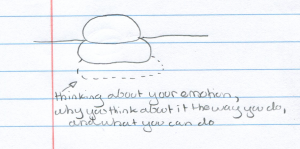
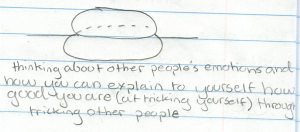
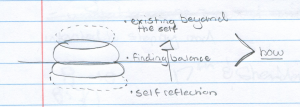
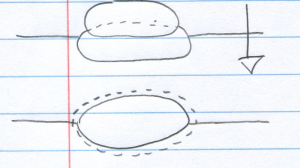
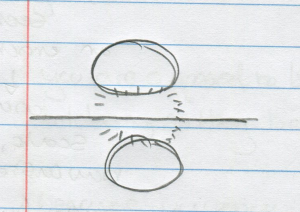
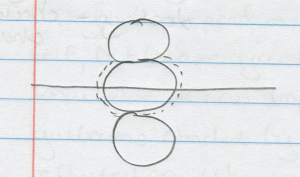
Leave a Reply